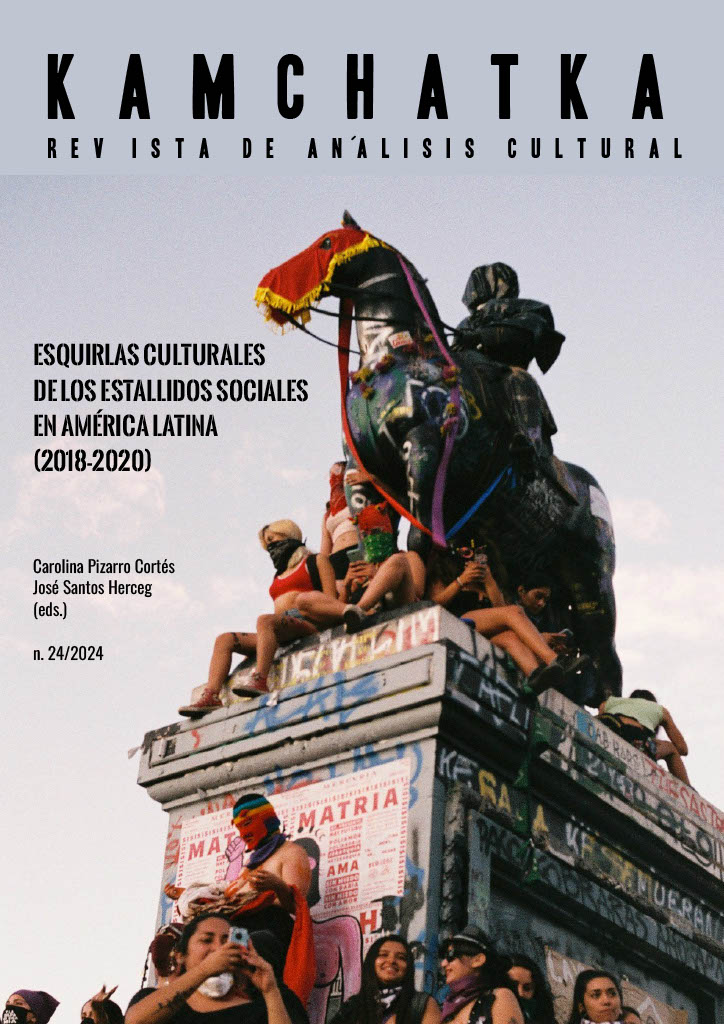The “Nagasaki Syndrome”: museums, postcolonialism and subaltern resistance
DOI:
https://doi.org/10.7203/KAM.24.28980Keywords:
Museums, Colonial memory, Resistance, Democracy, Naturalism Abstract
Abstract
A diagnosis and a warning. Since the end of the twentieth century, and with greater emphasis since the rise of the different variants of the environmental movement, the narrative structures of Europe’s major postcolonial exhibitions are embracing what I refer to the Nagasaki Syndrome. This syndrome, inspired by the dropping of the two atomic bombs that ended World War II, consists of treating historical phenomena —that is, social phenomena, such as conquest, exile or slavery— as if they were natural phenomena: without subjects, without reasons and without any responsible parties. Based on the analysis of three specific cases from Spain, France and Portugal, the paper aims to analyze the political consequences of treating historical phenomena as if they were natural phenomena, not unlike a drought or an earthquake. In other words, what ontological and epistemological effects do these discourses have on our relationship with history? How do they affect the fight against climate change and the construction of dissident and counter-hegemonic narratives? How do they affect democratic participation, memory transmission and, above all, the communal development of our capacities for tolerance and respect?
 Downloads
Downloads
 References
References
ABAD GARCÍA, Emiliano (2022), Por el rabillo del ojo: museos, literatura y poscolonialismo. ¡Sí, por favor! Tesis doctoral dirigida por la Dra. Marisa González de Oleaga y el Dr. Jesús Izquierdo Martín, Universidad Autónoma de Madrid.
ABT, Jeffrey (2010). “The Origins of the Public Museum”. Macdonald, Sharon (ed.). A companion to Museum Studies. Sussex: Blackwell, pp. 115-135.
ANDERS, Günther (2008). L’homme sur le pont: Journal d’Hiroshima et de Nagasaki. París: Seuil.
BAUDRILLARD, Jean (2009). La sociedad de consumo. Sus mitos, sus estructuras. Madrid: Siglo XXI.
BENNETT, Tony (2004). “The Exhibitionary Complex”. Preziosi, Donald y Farago, Claire (eds.). Grasping the World. The idea of the Museum. Aldershot: Ashgate, pp. 413-441.
BHABHA, Homi (2000). “Interrogating identity: The Post Colonial Prerogative”. Du Gay, Paul, EVANS, Jessica y Redman, Peter (eds.). Identity: a reader. Londres: The Open University, pp. 94-101.
DUPUY, Jean-Pierre (2015). A Short Treatise on the Metaphysics of Tsunamis. East Lansing: Michigan State University Press.
ESCOBAR, Arturo (2005). “El ‘post-desarrollo’ como concepto y práctica social”. Mato, Daniel (coord.). Políticas de economía, ambiente y sociedad en tiempos de globalización. Caracas: Universidad Central de Venezuela, pp. 17-31.
GONZÁLEZ DE OLEAGA, Marisa (2016). “Democracia y museo. Diferencia y conflicto en los relatos del Museo de América en Madrid”. Historia y Política Nº35: 123-144. ISSN-e 1989-063X.
MACDONALD, Sharon y Leahy, Helen Rees (eds.) (2015). The International Handbooks of Museum Studies, Vol. I. Chichester: Wiley.
MARTIN, Stéphane (2006). “Making a Museum: ‘it is making theater, not writing theory’”. Entrevista de NAUMANN, Peter. Museum Anthropology, Nº2, vol. 29: 118-127. https://doi.org/10.1525/mua.2006.29.2.118.
NEIMAN, Susan (2015). Evil in Modern Thought: An Alternative History of Philosophy. Princeton: Princeton University Press.
WARE, Ben (2024). On Extinction. Beginning again at the end. Londres y Nueva York: Verso.
YOUNG, Robert (2001). Colonialism. An Historical Introduction. Oxford, Malden y Carlton: Blackwell Publishing.
Downloads
Published
How to Cite
-
Abstract1
-
Artículo PDF (Español)0
Issue
Section
License
This journal provides an immediate free access to the content on the principle that freely make investigation available to the public, which promotes an increased global knowledge exchange.
Unless otherwise indicated, texts published in this journal are under the license Attribution-NonComercial 4.0 by Creative Commons. These texts may be copied, distributed and publicly communicated whenever the publication’s author and title are quoted and whenever they are not used for commercial purposes. In any case, intellectual property of the articles and its potential economic rights entirely belong to its authors.
The full license can be consulted on https://creativecommons.org/licenses/by-nc/4.0/. We encourage authors to disseminate papers published in Kamchatka. Journal of cultural analysis electronically, in institutional digital repository or in their websites.





